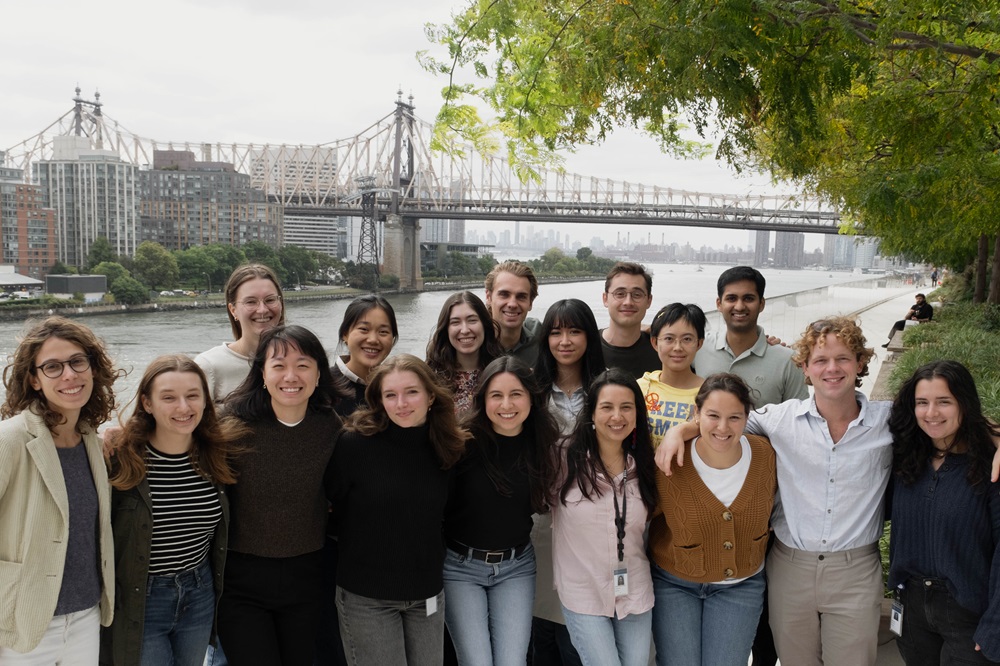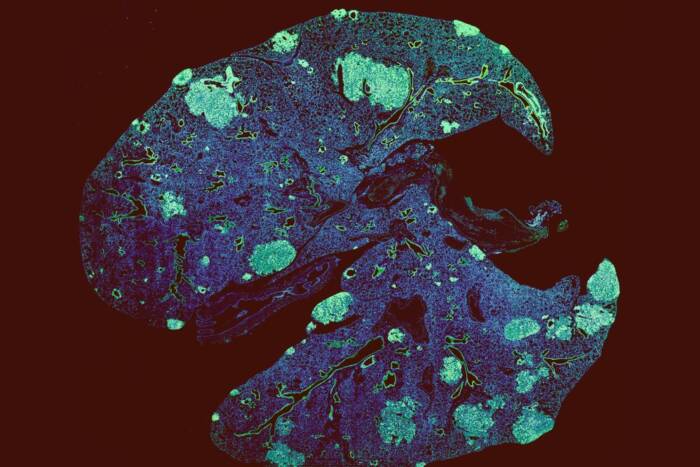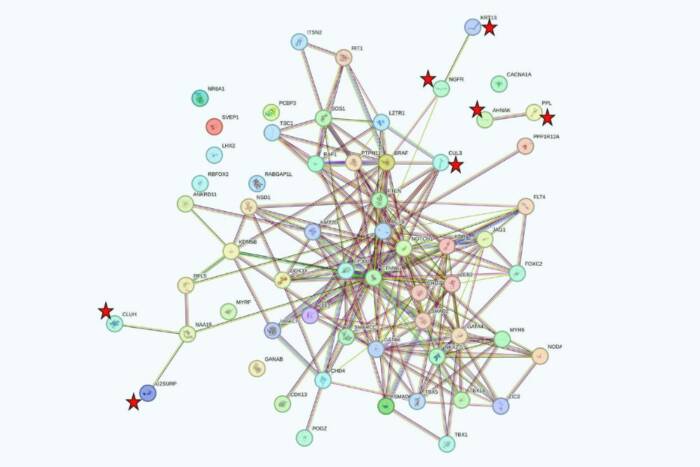Rockefeller launches new introductory curriculum for graduate students

The incoming class of graduate students on the university’s river campus.
This fall, new students’ official introduction to life at Rockefeller looks a little different. It now includes three main components: an Experiment and Theory course, a series of research talks by faculty, and specialized sessions on how to make the most of their graduate school experience.
“We realized that we could offer programming that gives students a better sense of life at Rockefeller, while still allowing for plenty of time for lab rotations and thesis lab choice,” says Tim Stearns, Rockefeller’s dean of graduate and postgraduate studies. “This approach gives our students a little extra time to learn the essential skills of being in graduate school—and to get a better understanding of how their mentors can support their academic and research journey.”
The Experiment and Theory course, which is taught collaboratively by Stearns and Sanford M. Simon, Rockefeller’s Günter Blobel Professor, focuses on how to think critically about science. Students read and evaluate papers from the primary literature and propose their own creative “next step” experiments based on the papers. This course has a long history at Rockefeller, and Stearns and Simon hope that offering it in more concentrated form to students right at the beginning of their graduate school experience will better prepare them to begin lab research.
Throughout the month, Rockefeller faculty are giving talks offering overviews of their research. In the past, such talks would take place over months; this new structure gives students more information in advance of selecting their lab rotations.
The third session, called Thriving in Graduate School (TIGS) represents an entirely new offering focused on general skills needed to succeed in the first year of graduate school and beyond. One section, led by Stearns, Andrea Morris, assistant dean and director, career and professional development, and Emily Harms, senior associate dean for graduate studies, will focus on effective science writing and helping students to refine their research interests.
In another TIGS session, Matthew V. Covey, university librarian, explores information tools available to help students stay abreast of cutting-edge research in their fields.
Jeanne Garbarino, executive director of RockEDU Science Outreach, and Ashton Murray, chief diversity officer, are also leading a workshop on inclusive mentoring, and Rockefeller’s newest faculty member Avi Flamholz leads a session on quantitative understanding in Biology. Lastly, members of the Rockefeller Press are leading a discussion of integrity in presenting and publishing science.
“We hope this new approach will help jumpstart grad school for our students and enrich their whole Rockefeller experience,” says Stearns.


